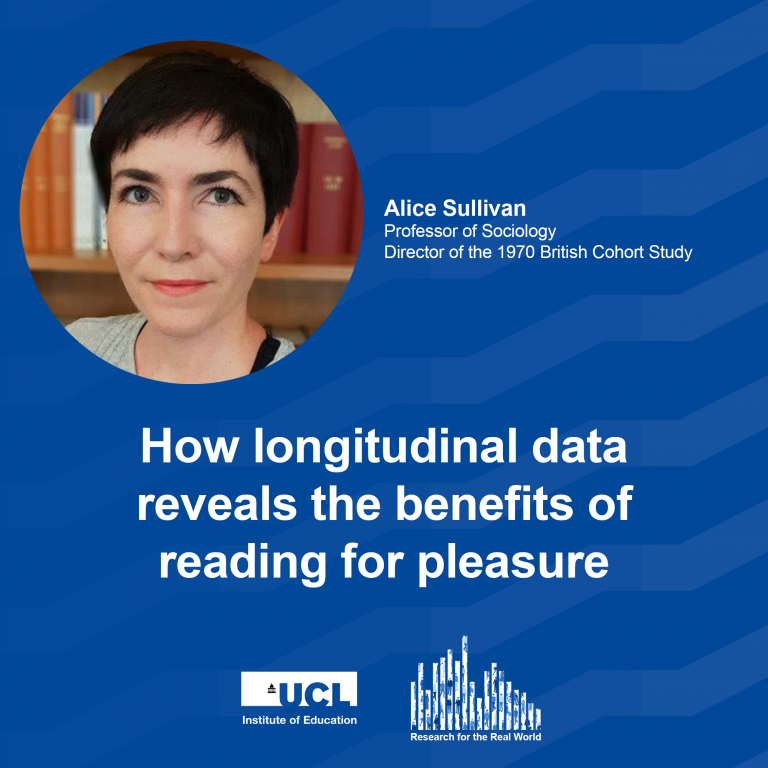How longitudinal data reveals the benefits of reading for pleasure | RFTRW: S01E02
13 May 2020
In this episode, Dr Rob Webster is joined by Professor Alice Sullivan to explore how the act of reading for pleasure as a child has positive influences that extend to later in life.

First of all, we find out what is reading for pleasure, and what makes it different from other kinds of reading styles? Is it teachable? Are there differences in the impacts between printed and digital material?
Using data from the 1970 British Cohort Study (BCS70) which follows the lives of over 17,000 people born that year, Alice and Matt Brown analysed the changes in vocabulary between the ages of 16 and 42. The research found that those children who read for pleasure made more progress in vocabulary and maths than their peers - and those that continued reading into middle-age experienced larger vocabulary gains from reading high-brow fiction.
We also try to understand the importance of longitudinal data and how it informs research findings in many areas at each stage of life. How do participants in large-scale studies such as BCS70 feel about this?
Alice also explains the kind of role policymakers, schools and families can play to foster a lifelong love of reading. Perhaps during these times of social distancing and isolation, it’s an opportunity to recapture that love and appreciation of reading?
Listen to the podcast
You can also listen to the podcast on:
Links
- Professor Alice Sullivan's research profile
- Matt Brown's research profile
- Centre for Longitudinal Studies
- Department of Social Science
- Reading for fun improves children's brains, study confirms - The Guardian
- Your vocabulary aged 40 depends on how much you read as a teenager - The Conversation
- Research for the Real World podcast
 Close
Close

